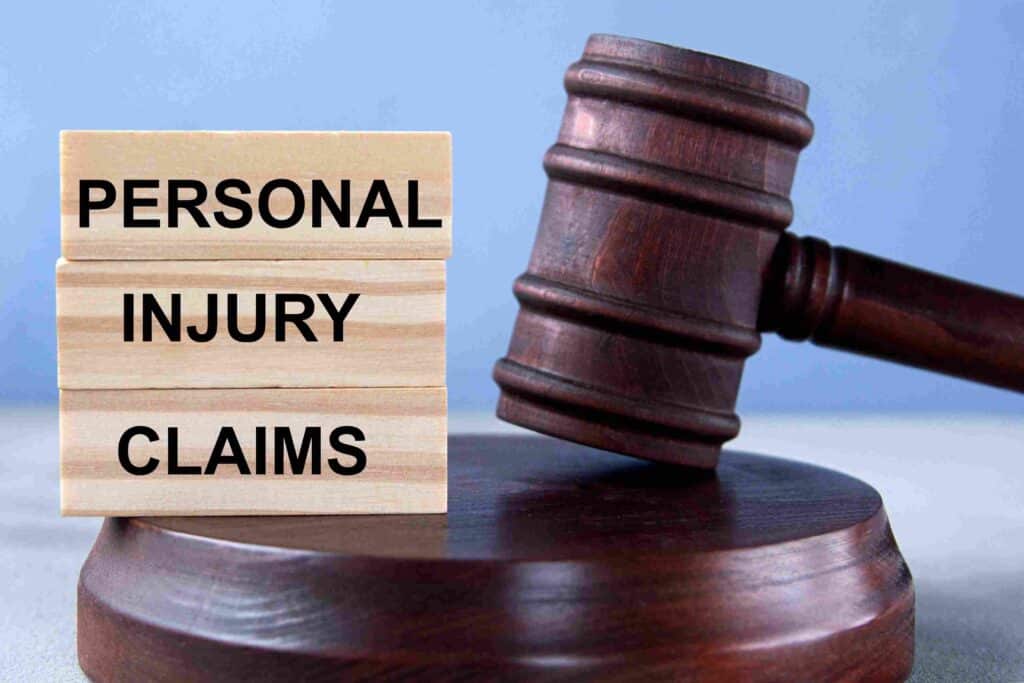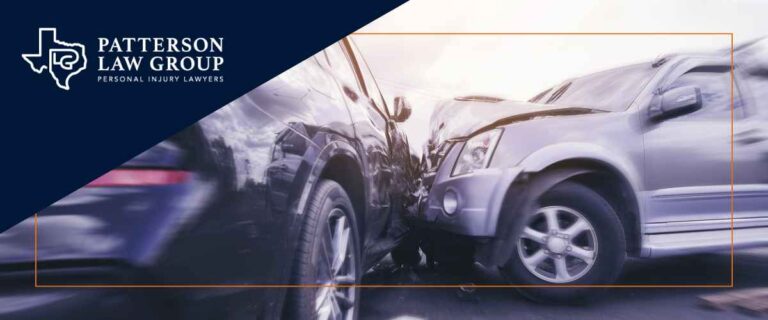It is estimated that 95% of personal injury cases will be settled before trial. However, when the at-fault party’s insurance company refuses to offer a fair settlement, going to trial may be the only option.
At Patterson Law Group, our Fort Worth personal injury attorneys will work to settle your case, which saves all parties time and money. If we cannot negotiate a fair settlement on your behalf, we are ready to litigate the case in court.
Knowing what to expect if your case goes to trial is important. Here, you can learn more about the personal injury trial process.
Preparing for Your Personal Injury Case
When pursuing a personal injury claim, you must know your rights. Preparing for your case is essential. Tips to help you prepare for your case and ensure you have all the documentation necessary include the following:
Understand Your Rights
In Texas, personal injury law is designed to restore individuals to their pre-injury state, financially speaking, following accidents caused by someone else’s negligence. As a victim, you can seek compensation for medical expenses, lost wages, pain and suffering, and more.
Choose the Right Attorney
Find a Fort Worth personal injury attorney with experience handling cases similar to yours.
The attorney you choose should understand the area’s legal landscape and be capable of effectively representing your interests.
Patterson Law Group has a Fort Worth team of personal injury lawyers committed to advocating for their clients’ rights. Their expertise increases the likelihood of a favorable outcome and ensures clients receive the support and guidance they need throughout the legal process.
Documenting Your Injuries and Losses
Thorough documentation of your injuries and losses is necessary to strengthen your personal injury claim. This includes compiling detailed medical records, gathering eyewitness accounts, securing photographic evidence of the accident scene, and maintaining a log of missed work days and related expenses.
Filing a Personal Injury Lawsuit in Fort Worth
Filing a personal injury lawsuit in Fort Worth is laid out step by step here.
The Statute of Limitations
In Texas, the law imposes a deadline for filing personal injury lawsuits, known as the statute of limitations. Typically, you have two years from the date of the accident to initiate legal action. Failing to file within this period generally results in losing your right to seek compensation.
Filing Your Complaint
Initiating a personal injury lawsuit in Fort Worth begins with filing a complaint. This document should detail the nature of your injuries, the accident’s circumstances, and the compensation you seek. The process involves:
- Drafting the complaint with the assistance of your Fort Worth personal injury attorney, ensuring it meets all legal requirements.
- Submitting the complaint to the appropriate court.
- Serving a copy of the complaint on the defendant, notifying them of the lawsuit.
Your attorney will provide advice and guidance to help you file your complaint properly.
The Defendant’s Response
After your lawsuit is filed, the defendant has a specific response timeframe—usually within 20 days in Texas. Their response can take several forms, including a denial of your claims, a motion to dismiss the case, or even a counterclaim.
They may also raise defenses, arguing that they were not at fault or that your negligence contributed to the injuries. Anticipating these responses and preparing counterarguments is essential and something your attorney can handle.
The Discovery Process
The discovery process is next. During this stage, both parties gather evidence from each other to build their cases. This allows each party to understand the strengths and weaknesses of each side’s arguments. This step ensures a fair trial or settlement.
Exchange of Evidence
During discovery, both parties exchange relevant evidence to the case. This evidence can include medical records, accident reports, emails, photographs of the accident scene, and any other documentation supporting or refuting the claims being made.
Exchanging this information ensures that the plaintiff and defendant are fully aware of the evidence that will be presented at trial. This prevents surprises and allows for a more straightforward negotiation process.
Depositions and Interrogatories
Two key components of the discovery process are depositions and interrogatories.
Depositions are in-person interviews where witnesses, including the plaintiff and defendant, are asked to testify under oath about the case. These sessions are recorded, and the testimony can be used in court.
Interrogatories, on the other hand, are written questions that the opposing party must answer in writing, also under oath.
Both depositions and interrogatories clarify the facts of the case, allowing attorneys to gather detailed information and formulate stronger arguments for trial. They are essential for uncovering the truth behind each party’s claims and defenses, making them indispensable tools in the trial preparation.
Pre-Trial Motions and Mediation
Before a personal injury case goes to trial, steps are taken to help streamline litigation or resolve the dispute.
Understanding pre-trial motions and the mediation process is essential for anyone navigating a personal injury lawsuit.
Understanding Pre-Trial Motions
Pre-trial motions are legal filings by either party requesting the court to make a decision on certain aspects of the case before it goes to trial. Common pre-trial motions in personal injury cases include motions to dismiss, for summary judgment, and to exclude evidence.
The motions can eliminate some issues to be tried. Sometimes, the case is dismissed, or the trial becomes more focused.
These motions can narrow the case by narrowing the issues to be tried, potentially dismissing the case altogether, or setting the stage for a more focused trial. Your Fort Worth personal injury attorney can use the motions to improve your position or mitigate potential challenges from the other side.
The Role of Mediation
Mediation is an alternative dispute resolution process where a neutral third party, the mediator, facilitates negotiations between the disputing parties to help them reach a settlement.
Mediation is often encouraged or even required before a case proceeds to trial. Its benefits include the potential for a quicker resolution, reduced legal fees, and an agreeable settlement for both parties.
Your personal injury lawyer can also help with the mediation process. They advocate for your interests and help you reach a resolution that meets your goals and needs. If mediation is successful, it will eliminate the need for a trial.
The Trial Process
In a personal injury case, the trial process involves the parties presenting their evidence and arguments before a judge or jury. Understanding the events during the trial can help you prepare and know what to expect.
Jury Selection
In Fort Worth, jury selection, also known as voir dire, involves questioning prospective jurors to ensure they can judge the case impartially. Attorneys from both sides may ask questions related to the case and use challenges to exclude certain jurors. This phase works to establish a fair and unbiased jury panel.
Opening Statements
Once the jury is selected, the trial begins with opening statements. This is the opportunity for each party to outline the facts and legal theories for their side of the argument. These statements provide a roadmap of what each side intends to prove, setting the stage for the evidence presentation.
Witness Testimony and Cross-Examination
At this point, the trial involves presenting evidence through witness testimony. Witnesses, including the plaintiff, defendant, experts, and eyewitnesses, are called to testify about their knowledge of the case.
After a witness testifies, the opposing side can cross-examine them, challenging their credibility and the accuracy of their statements. This back-and-forth is vital for establishing the facts and persuading the jury.
Closing Arguments
After all evidence has been presented, each side makes closing arguments. These are final appeals to the jury, summarizing the evidence and arguing why it supports their case. Closing arguments are the last chance to influence the jury before deliberating. Your attorney will use this opportunity to emphasize the key points and legal issues discussed during the trial.
Jury Deliberation and Verdict
The jury then retreats to deliberate, discussing the case in private until it reaches a unanimous verdict. This phase can vary in length, depending on the complexity of the case and the evidence presented.
Once a verdict is reached, it is announced in court, concluding the trial. The jury’s decision determines the case’s outcome, whether the plaintiff receives compensation, and, if so, how much.
Post-Trial Actions
After a personal injury trial concludes, your attorney can help you understand the verdict. If necessary, they can also help you file an appeal.
Understanding the Verdict
The verdict in a personal injury trial is the jury’s decision regarding the defendant’s liability and the compensation awarded to the plaintiff, if any. Understanding the verdict is essential, as it directly impacts the plaintiff’s ability to recover damages for their injuries and losses. It signifies the closure of one legal chapter and, possibly, the beginning of another, should an appeal be considered.
Appeals Process
Dissatisfaction with the trial outcome can lead parties to consider the appeals process. An appeal is not a new trial but a request for a higher court to review the trial court’s decision for legal errors that could have affected the verdict.
The appeals process in Texas involves submitting written briefs to the appellate court, outlining the alleged errors, and sometimes oral arguments.
Let Our Fort Worth Personal Injury Attorney Help with Your Claim
Navigating the personal injury trial process in Fort Worth can be complex. Each step, from filing your lawsuit to understanding post-trial actions, requires careful consideration and legal expertise.
Patterson Law Group guides clients through these intricate legal processes, ensuring their rights are protected and advocating for the compensation they deserve. With their comprehensive support, clients can feel confident and informed at every stage of their personal injury case, from initial consultation to potential appeals.






